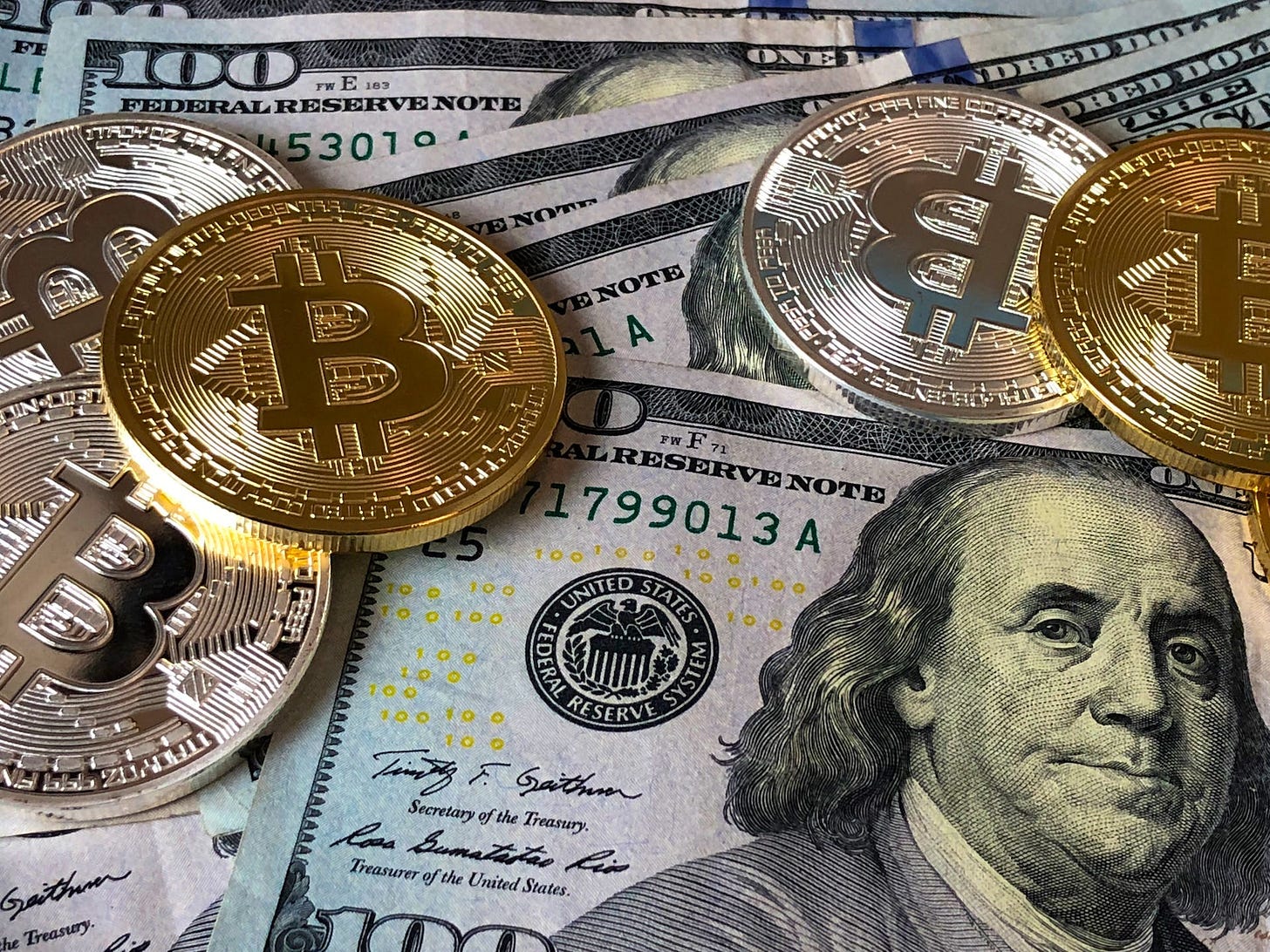4 Reasons Why You Should Hold Bitcoin in 2024
“Bitcoin will do to banks what email did to the postal industry.” — Rick Falkvinge
Bitcoin has spurred both enthusiasm and scepticism since its inception in 2008. The timing isn’t a coincidence. It was born in the aftermath of The Great Recession, when the whole world’s economy was torn to pieces by dogsh*t Mortgage Backed Securities (MBS). I love to revisit this scene from The Big Short every time I think about it.
It may seem like an opportunistic invention, a scheme to get rich quick when market sentiment was gloomy at best. However, what happened in 2008 was no exception — it was inevitable. Bitcoin was born to replace the traditional financial system, which is flawed by design.
I will write another post about this, but in this one I will give you 4 reasons why you should hold Bitcoin in 2024.
1. No one can take it away from you
In 2021, Canada’s PM Justin Trudeau introduced vaccine mandates to combat COVID-19 spread. From that moment on, any Canadian had to take a COVID-19 shot if they wanted to have a functional life. Non-compliance would result in fines, unemployment, or having your bank account frozen.
This is what happened with The Freedom Convoy. A group of truck drivers refused to take the vaccine and organised a demonstration in Ottawa. The response by the government? Freezing their bank accounts. You read it right. Canada, a role model of progress and democracy, resorted to such totalitarian a measure. Why? Because they can.
Traditional currencies — aka fiat — don’t belong to you. Yes, the money you hold in your bank account is only yours so long as you comply with the whims of centralised authorities. Sometimes they’re reasonable, but most of the times not. In contrast, no one can seize your bitcoin — this doesn’t apply to the ETFs. The only way someone could access your bitcoin is by having your private keys. It’s like a password that you have to keep secret. Could you get hacked? Yes, a great power comes with a great responsibility. The benefits far outweigh the risks in my eyes.
2. It’s scarce
The Fed was born in 1913. Do you know how much value the U.S. dollar has lost ever since?
In other words, $1 now would be worth 4 cents in 1913. Inflation gets more scary if you think about it in terms of currency devaluation, and not so much in rising prices. Prices rise because a currency is worth less, so you need more units of that currency to pay for the same value. Most fiat currencies are inflationary.
Central banks do whatever they want with them, and guess what? Common people don’t have a say on monetary policy. It’s only for men in suits like daddy Powell. These people get to decide the future of the tool we use to buy food to feed our children, and there’s no way for us to control what they do. If only there was a currency that could solve all of this…
Well, that’s Bitcoin. “It’s gold for nerds” — says Stephen Colbert. He’s right, but I would argue it’s even better than gold. Central banks can’t print more bitcoin — it possesses inherent scarcity, making it a robust store of value. With a finite supply capped at 21 million coins, Bitcoin's scarcity ensures that it cannot be debased through inflationary measures. Its emission rate halves every 4 years — a process known as halving.
3. It’s a performance beast
Its performance is a testament to Bitcoin’s remarkable journey from obscurity to global prominence. Since the beginning, Bitcoin has exhibited unparalleled volatility, experiencing both meteoric highs and daunting lows. Despite these fluctuations, its value has surged exponentially. From 2011 to 2023, its accumulated return is a staggering 1,120,785%! I can’t think of other assets with similar returns.
While occasional downturns have tested investor resolve, Bitcoin's resilience and enduring appeal as a decentralised digital asset have remained steadfast. On May 2024 we will witness Bitcoin’s next halving, which is usually either preceded or followed by all time highs. Will you miss out on it this time?

4. Borderless Transactions
Have you ever had to make an international transaction? It’s annoying, it takes time, and oftentimes it costs money. Bitcoin transcends geographical boundaries, enabling seamless transactions across borders without the need for intermediaries or exorbitant fees. It enables peer-to-peer transactions with unparalleled speed and efficiency, through its Lightening Network.
This opens up a whole new economy, where companies and even countries can use it as their main means of exchange, as is the case of El Salvador, or Boracay, in the Philippines. Whether sending remittances to loved ones abroad or conducting international trade, Bitcoin offers a frictionless means of transferring value, unencumbered by the limitations of traditional banking systems.
Do you hold Bitcoin?
Photo of the week
Alejandro Lopez — The Psychology of Wealth




and one reason why you shouldn’t . . . elizabeth warren
Will you keep HODLing or will you take profits during the next halving and wait for a dip to buy again?